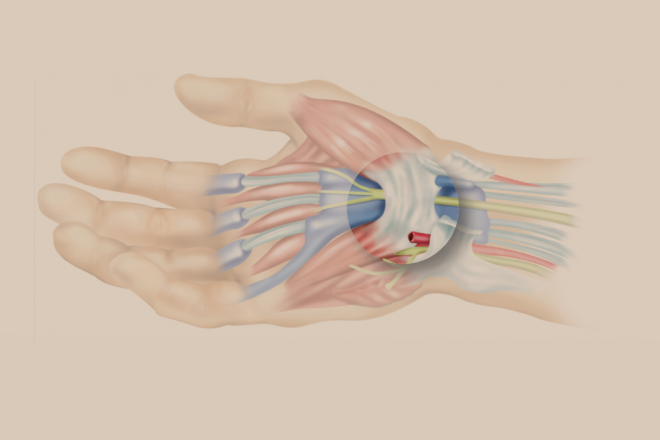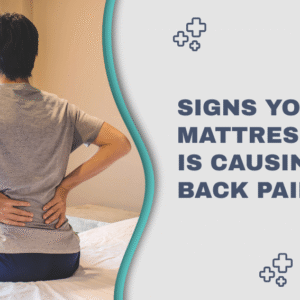The condition known as carpal tunnel syndrome produces pain in both hand and arm together with a sensation similar to pins and needles. This condition applies pressure to the median nerve present in the hand so that it affects nerve passages through the wrist. Carpal tunnel syndrome afflicts millions of people throughout the world because so many individuals use computers and type at their workplace.

Carpal tunnel syndrome can cause painful sensations in one’s wrist and hand but it can be prevented or its occurrence minimized. This article offers an elaborated view of these prevention tips that embracing such as changes in lifestyle, changes in ergonomics and certain exercises helpful in maintaining strong health of your hands and wrists.
Understanding Carpal Tunnel Syndrome
It is therefore advisable to spend some time to assess and review what carpal tunnel syndrome is and how it impacts on the body before moving to the prevention measures. The carpal tunnel is a tough and inflexible canal made up of ligament and bones situated in the wrist’s base. This tunnel is the carpal tunnel that shields the median nerve which is responsible for feeling and movement in some parts in the hand. CTS occurs when the tunnel becomes narrow and when tissues surrounding flexor tendons inflate therefore putting pressure on the nerve.
Common Causes and Risk Factors
- Repetitive Movements: Any activities that involving vigorous activities of the hand and wrists are likely to cause CTS. Some of them are typing, using mouse skills, sewing skills, as well as the musical skills that involve the use of hands to play instruments.
- Anatomical Aspect: Some people have narrow carpal tunnel or else predisposing conditions that would lead to swelling.
- Medical Conditions: Other disorders include diabetes; rheumatoid arthritis; and thyroid disorders are some of the conditions that contribute to the development of CTS.
- Pregnancy: It is characterized by hormonal fluctuations that cause swelling and water retention hence putting pressure on the median nerve.
- Risk Factors: The risks include occupations exposing workers to flexion-extension stress at the wrist or use of vibrating tools.
Awareness of these factors may solve this problem and enable the development of targeted prevention measures.
Prevention Tips for Carpal Tunnel Syndrome
Ergonomic Adjustments
- Workstation Optimization: At the time of using the workstation, it is important to make sure that the ergonomics are perfect. The screen should be placed in front of your eyes’ line of sight; the keyboard and the mouse must be positioned in such a manner, that your wrists do not lie in a slightly elevated or declined position.
- Keyboard and Mouse: There is specially marketed keyboards and mice that are suitable for reducing stress on wrist likely to occur from the extended duration of the computer usage. The split keyboard or the possible vertical mouse can eliminate wrist bending in most cases. If you are having a difficult time feeling comfortable in front of a keyboard, you may need to invest in something larger, or perhaps consult with a hand surgeon Singapore to address any underlying issues.
- Wrist Support: Instead of using a notebook, keyboard tray or an ergonomic keyboard consider using a wrist support such as a rest or pad. These can assist in minimizing the movement of wrist in an attempt to writing, typing, using the computer mouse and such other tasks.
- Frequent Breaks: Practice the 20-20-20 rule: From any place you are working, to take a break after every 20 minutes to look at an object approximately 20 feet away for 20 seconds. Also, raise your hand and wrist from time to time, at least once an hour.
Exercises and Stretches
- Wrist Flexor Stretch: Keeping your arm straight ensure that your wrist is above your fingers flex your wrist toward the fingers. With your other hand, pull your fingers backwards while keeping your palm flat on the ground, this stretches the palm’s region opposite to the wrist. Before releasing the pressure, move to the other hand for 15-30 seconds and then back to the first hand again.
- Wrist Extensor Stretch: Stand relaxed in front of a door or a pole, bend the elbow, and hold the wrist of your affected hand with the other hand so that palm is placed facing the door or the pole. With the other hand also pull your fingers towards you and try to stretch the top part of your right wrist. Please, hold it for 15-29 seconds and then change the position for the other hand.
- Towel Twist: Take a small towel and fold along your body lengthwise, grasp both the ends then twist the towel over the head and behind the back. This particular exercise helps in strengthening muscles of the forearms and the wrists.
- Finger Walks: Sitting on a table, put your palm on it level to the table top. Make one’s fingers in turns in one continuous movement similar to the movement of climbing the steps of a single flight of stairs before slowly coming down. The following exercise is useful in toning the muscles of the hand.
- Grip Build-up: It is recommended to grip a stress ball or a grip strengthener on a regular basis. This can help in the development of strength of the muscles of the hand and the forearm muscles.
Lifestyle and Activity Modifications
- Hand Position: It is important to take care of the position of hands in the performance tasks. Prolonged flexion or extension of the wrists is discouraged particularly when typing with tools or any other related devices.
- Proper Technique: When handling objects, you must ensure that you are using the correct technique. Do not lift anything with a bent wrist; ensure that the wrist is straight so that there is minimal pressure on it.
- Hydration & Nutrition: Do not forget to take a lot of water and other liquids and eat healthy foods since this may also help in avoiding swollen or inflamed nerves, thereby avoiding CTS.
- Weight Management: Obesity is the other risk factor associated with carpal tunnel and this means that one should be able to keep off any extra pounds.
- No Smoking: This is a policy because cigarettes harm the blood circulation and arteries leading to the contracture of the carpal tunnel.
Medical Interventions
- Early Treatment: If you noticed developing one or more of the symptoms of CTS then do not put off going and seeing a doctor about it. This means that one can get an early treatment to the ailment before it gets worse.
- Utilization of Splints: Wearing a wrist brace, particularly at night, prevents the sprain of the wrist and as an outcome, minimizes pressure on the median nerve.
- Anti-inflammatory Medications: Such drugs as the nonsteroidal ones (NSAIDs) have the ability to tackle the issue through the reduction of inflammation and alleviation of pain.
- Physiotherapy: Prior to wasting any cash, consider seeing a physical therapist who will recommend exercises for the muscles surrounding the wrist as well as stretches.
- Other Treatments: Acupuncture, massage therapy, and chiropractic, are some of the other.
Work-Life Balance
- Job Rotation: Whenever possible, one should change job on how their tasks are accomplished especially those that require repetitive movements. This may be useful in decreasing the chances of overuse conditions like CTS.
- Stress Management: Stress has an effect on even the physical wellbeing of a patient. Meditation, and yoga is also good for stress reduction since it is a way of reducing clinic and somatic manifestations of stress.
- Exercise: Physical fitness is very important when it comes to desk jobs, people should be encouraged to exercise regularly to enhance blood circulation and also to ease stress. Exercising options such as swimming or cycling are good for such a person.
Conclusion
The measures for avoiding carpel tunnel syndrome are mainly adjusting the body posture and working environment, taking regular exercise, engaging in proper nutrition and lastly taking appropriate treatment when need arises.
In order to minimize the chances of being affected by this condition, you should take preventive measures regarding the factors that may lead to CTS. As with any orthopedic conditions, it is always better to prevent the problem rather than to attempt to treat it and so, those who treat their wrists and hands properly will be more likely to avoid this uncomfortable situation in life.
If you think you have CTS, you ought to seek the services of a doctor to get a correct diagnosis of the problem and subsequent management. The best thing you can do is to prevent all the risk factors that may compromise the health of your hands and wrists, so your hands waste many more years of good and gratifying use.






